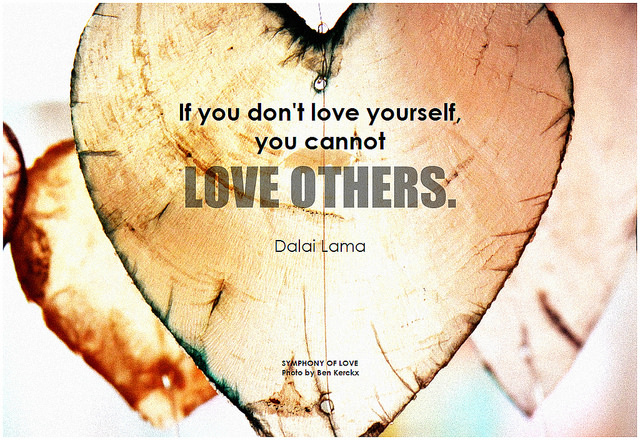WELCOME TO OUR
Winter Newsletter - 2019
Gift Vouchers for Winter - Where has this year gone?
If you are on the lookout for a gift voucher look no further :) We have gift vouchers available for all our wonderful practitioners.
Come in and grab one or give us a call and we can post your voucher out to you.
Self-Acceptance – Stop Beating Yourself Up

For change to occur within us, self-acceptance is considered the prerequisite. It can be achieved by stopping criticizing and beating ourselves up. That is, tolerating and accepting of our imperfections.
So what is Self-Acceptance?
The dictionary defines self-acceptance as:
- the awareness of one's strengths and weaknesses,
- the realistic (yet subjective) appraisal of one's talents, capabilities, and general worth, and,
- feelings of satisfaction with one's self despite deficiencies and regardless of past behaviours and choices.
Self-acceptance involves self-understanding, a realistic, albeit subjective, awareness of one's strengths and weaknesses. It results in an individual's feeling about oneself that they are of "unique worth".
A person who has a high level of self-acceptance:
- has a positive self-attitude,
- acknowledges and accepts all aspects of themselves (the good and the bad),
- is not self-critical or confused about their identity, and,
- does not wish they were any different from who they already are.
So what is your own, personal definition of self-Acceptance that will allow you to lead the life you desire?
Striving to improve the self is terrific, but also knowing our limitations and accepting those for what they are and feeling calm about the outcomes means that you see yourself objectively and can stop feeling inadequate, beating yourself up and feeling guilty.
Of course, we can all work on improving ourselves more than we actually believe that we can, however, we all vary to some degree. We all have different levels of natural ability, some are better at sport than others and others are more academically inclined. To work on improving things we need to “back” ourselves, we need to recognise that we all have limitations and we all have certain strengths and weaknesses, however, it is the strengths that will help us move forward to achieve the goals we wish to achieve.
Self-acceptance is being able to “access yourself fairly” so that you are able to be calm about things, rather than beating yourself up or getting upset. It doesn’t mean that we can’t strive to change or improve ourselves, however, to acknowledge our weaker points and encourage ourselves to grow while further developing those stronger points too.
When we have self-acceptance we begin to acknowledge our achievements, defining our own values and setting our own standards of approval, no longer do we need to bluff our way through things or feel inadequate and just feel OK as you are.
When we respond to what others think of us, we put too much pressure on ourselves and behave in ways that aren’t really true to ourselves.
The fact is that different people have different strengths and weaknesses and wouldn’t it be boring if we were all the same, however, you can learn from others and watch how they respond to situations or other people and if their behaviour is acceptable to yourself, then perhaps you may adopt some of those qualities that you aspire to.
It is really OK, to say ‘I am not good at something” or “you are not sure about things”, it is about having the ability to relax with the limitations that you feel you may have.
You can also allow yourself to accept other aspects of your life, such as background, lifestyle or culture, etc.; we do not need to beat ourselves up because we don’t “fit in”. You are a unique, valuable and worthwhile person.
In fact when you accept yourself for whom you are, you will begin to have greater clarity as to just what you feel you need to improve or make changes within your life.
Therefore, allow hypnotherapy and counselling to assist you to:
- use your imagination to practise being the way you want to be,
- Let the subconscious mind know of the framework that you want to act on;
- Learn to use the subconscious mind to act spontaneously, respond to the images created making them a reality – just like learning to ride a bike or driving a car;
- Engage all of the body’s senses to create the life you want – see it, feel it, hear it, taste it or even smell the life you would like to have and all of the components that go with it, accepting yourself for whom you are; and
- Use your imagination to be and act in certain ways, be able to name it. You need to know what you would like to achieve before you begin to work on improving it, equally, how do you know what self- acceptance is without being able to imagine what it is like. Or having an idea of it?
Create the images of how you wish to be and how you wish to live your life.
Image credit: flickr.com
Sleep – It Can Be Difficult!

It is not uncommon for people to experience sleep difficulties at certain times of their lives, however, for some, it can become a chronic and debilitating condition.
It is amazing what can interfere with our sleep patterns, whether it be pressure at work, family issues, ill health, environmental factors, expectations of others or relationship concerns to name just a few.
We find ourselves lying in bed, closing the eyes, however, the mind is working overtime. A thought pops into the head and before it disappears another is taking place. It goes on and on. You know that you need to go to sleep so that you can function coherently tomorrow, however there doesn’t appear to be any ability to silence the thoughts and you become more and more restless and agitated.
Then we start to worry that sleep won’t come and the adrenaline begins to pulse throughout the body, feeling more and more awake and sleep continues to escape us for yet another night.
What are some of the factors that can affect our sleep:
- perhaps you don’t sleep because there is a medical condition or a personal situation that requires medical attention/counselling;
- perhaps you are consuming too many stimulates (coffee, tea, alcohol, soft drinks, sugar, salt);
- napping during the day; or
- participating in physical or mental activities just prior to going to bed;
- the bedroom is associated with mental activities such as catching up on work, watching TV or balancing the accounts rather than a place to relax;
- environmental factors – too hot, too cold, noise, lumpy pillows, etc; or
- starting to fixate on our bedtime monologues. i.e. Oh, its 2.00am, I have to get to sleep, or Oh, everything is in such a mess, I need to fix it now.
Hypnosis in the management of Sleep Disruption:
Hypnosis can help:
- to balance and readjust your pattern of mental activity, calming the mind and body, greatly reducing the stresses and anxieties;
- to reprogram those bedtime monologues;
- replace negative thoughts with positive thoughts;
- build resilience to cope better;
- to relate night time to sleep time (or in the case of shift workers to the times that are more suitable);
- re-establish the body’s natural sleep patterns; and
- improve sleep quality naturally, among other side benefits.
Through the use of hypnotherapy and guidance, Karen will be able to assist with ways of overcoming the difficulties of getting a good quality sleep, which will provide great benefits and improve the enjoyment of life.
Image credit: Alyssa Miller (Flickr)Practitioner Bio's
Remedial Massage with Virginia Dyson

I believe everyone should be able to access the benefits of massage therapy. It should be a way of life. Through the centuries massage has been used and it has been shown to have many benefits, it is still used today for the very same reasons.
Remedial massage treatments are tailored by qualified therapists to help ensure that your body stays in optimum performance condition whether you have a specific issue or are just looking for a general tune-up.
Massage is used to heal and to nurture. It improves circulation, immune function, muscle tone, mental and physical health. Massage can be a part of your health maintenance program, a time to nurture yourself, time out to relax, to help prevent injury and to help the body to heal injury.
Sweet Potato Shepherd's Pie (Gluten Free)
 PREP TIME 10 mins COOK TIME 60 mins TOTAL TIME 1 hour 10 mins
PREP TIME 10 mins COOK TIME 60 mins TOTAL TIME 1 hour 10 mins
Serves: 6
INGREDIENTS
- 4 medium sweet potatoes, peeled & chopped into small pieces
- 1 tbsp extra virgin olive oil
- ½ cup diced celery
- ½ cup diced onions
- 1 large garlic clove, minced
- ½ cup diced carrots
- 4½ cups cooked lentils
- 2 cups diced tomatoes
- 2 tbsp soy sauce
- 2 tbsp non-dairy milk (I used almond)
- Salt & pepper to taste
- paprika & fresh parsley, for garnish
INSTRUCTIONS
- Preheat oven to 175C.
- Steam your sweet potatoes and set aside.
- While the sweet potatoes are heat a large pan over medium heat. Once warmed, add a tbsp or so of oil, then add in the diced celery, onion, garlic, tomatoes and carrots. Cook for about 5 minutes, or until softened.
- Add the cooked lentils and soy sauce to the veggies, and heat until warmed through.
- Once your sweet potatoes are finished steaming, mash with the non-dairy milk some salt & pepper.
- Scoop the lentil & veggie mix to the bottom of a 9x13 baking dish, then spread the mashed sweet potatoes over top and spread in an even layer.
- Bake for about 25 minutes, or until the top has browned lightly. Sprinkle with a bit of paprika and fresh parsley, if desired. Serve warm.
Looking for a special Winter gift?
Gift vouchers are available from reception for all practitioners at Bodi and Mind - Karen Holt Clinical Hypnotherapy & Counselling or you can call 5223 2370 and have one posted to the address of your choice. Stress free gift giving? Done!
Check out the range of services we offer @ https://bodiandmind.com.au/
If you wish to opt out of this newsletter then please send an email titled "unsubscribe' to

